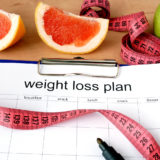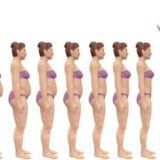Importance of Vitamin D for Kids and Adults
Vitamins in Our Daily Diet
Vitamins are essential nutrients that are required by the body in order to maintain its optimum health. Without adequate intake of vitamins, the body can become deficient in these vital micronutrients, resulting in a range of health issues.
Vitamins are obtained through food sources, and ensuring an adequate daily intake is important for physical and mental wellbeing. A diet rich in fresh fruits, vegetables, nuts, seeds, and whole grains can provide the necessary vitamins that the body needs to stay healthy.
A balanced diet should include all the essential vitamins and minerals, including vitamin A, B complex, C, D, E, K, and also minerals like iron, calcium, potassium, and magnesium.
Vitamins play a key role in the regulation of chemical reactions and processes, such as energy metabolism and immune system regulation. Without vitamins, these chemical processes would not be able to occur optimally, resulting in poor health.
Importance of Vitamin D for Children
Vitamin D is especially important for children, as it aids in the development of strong bones and teeth, as well as healthy skin.
It also helps to improve the immune system, making children less susceptible to illnesses. Recent studies have shown that vitamin D deficiencies are increasingly common in young children and adolescents. This can also help improve dental health.
Without adequate intake of vitamin D, children can suffer from a range of health issues, including rickets, which can impair their physical development.
In addition, vitamin D helps to regulate the amount of calcium and phosphorus in the body, ensuring that bones remain healthy and strong.
Daily Dose of Vitamin D
The American Academy of Pediatrics has doubled its recommendation for a daily dose of vitamin D in children. They did so in the hopes of preventing rickets and reaping other health benefits.
“We are doubling the recommended amount of vitamin D children need each day because evidence has shown this could have life-long health benefits,” said Dr. Frank Greer, of the American Academy of Pediatrics, which released the new guideline recommendations at a meeting in Boston.
“Supplementation is important because most children will not get enough vitamin D through diet alone,” Greer said in a statement.
The new guidelines from the nation’s leading group of pediatricians now call for children to receive 400 international units of vitamin D per day, beginning in the first few days of life. Children who do not get enough vitamin D are at risk for rickets, a bone-softening disease that result in stunted growth and skeletal deformities if not corrected while the child is young.
Vitamin D for babies
Babies who are exclusively breast-fed are at particular risk.
“Breast-feeding is the best source of nutrition for infants. However, because of vitamin D deficiencies in the maternal diet, which affect the vitamin D in a mother’s milk, it is important that breast-fed infants receive supplements of vitamin D,” Dr. Carol Wagner of the physician’s group, who helped write the report, said in a statement.
Vitamin D for adults
Vitamin D is not just important for children; adults also need to ensure that they are getting enough Vitamin D, as it is essential for maintaining good health and a strong immune system. This vitamin helps boost the function of the immune system, so that it can fight off any potential infections and illnesses. It also helps to protect against certain autoimmune disorders and chronic diseases, such as diabetes, and even some forms of cancer.
Vitamin D helps regulate calcium levels in the body and can help prevent conditions such as osteoporosis and arthritis. Vitamin D also aids in the absorption of phosphorus and magnesium, helping to ensure healthy bone and muscle function, as well as nerve and brain function.
Supplementation of vitamin D is extremely important for male as it may help boost male fertility. According to a study published in the Journal of Human Reproduction, men who are deficient in Vitamin D are less likely to become fathers than those who have normal levels. Vitamin D is known to help regulate the amount of testosterone in men. This also boosts sperm production and helps men maintain a healthy libido.
Finally, vitamin D is essential for women, too. Studies have shown that women who are deficient in vitamin D are at a higher risk of getting breast cancer.
Sources of Vitamin D
Vitamin D can prevent and treat rickets, but dietary sources of vitamin D are fairly limited. Vitamin D-fortified milk is the most common source, but fortified cereals and oily fish such as tuna, mackerel and sardines also contain vitamin D. Rickets remains rare in the United States, the Centers for Disease Control and Prevention says. But there were reports in 2000 and 2001 of rickets among breast-fed infants.
Sunlight is the best source of vitamin D, but exposure to sunlight can also raise the risk of skin cancer. Air pollution, sunscreen and clothing all limit the amount of vitamin D the body can synthesize from sunlight. The group suggests non-breast-fed infants and older children who are drinking less than one quart (liter) of vitamin D-fortified formula or milk daily should receive a vitamin D supplement.
Adequate vitamin D throughout childhood may reduce the risk of osteoporosis later in life. In adults, new evidence suggests that vitamin D plays a role in the immune system and may help prevent infections, autoimmune diseases, cancer and diabetes.
How to boost the vitamin D in your diet
Calcium is essential for strong bones, but you also need vitamin D to help your body absorb it. Lots of people don’t get enough vitamin D; eating fatty fish, such as the salmon in this delicious dish, twice a week is an easy way to boost the D in your diet.
Norwegian-Style Oven Roasted Salmon:
- Makes 6 servings
- 1/3 cup of honey
- ¼ cup plus 2 tablespoons fresh lemon juice
- ¾ ounce garlic, minced
- ¼ tablespoon salt
- ¾ teaspoon ground cumin
- ¾ teaspoon paprika
- 1 teaspoon ground coriander
- ¼ cup plus 2 tablespoons white wine
- ¼ cup plus 2 tablespoons olive oil
- 3 ounces parsley leaves, chopped
- Six 3-ounce salmon fillets
Combine honey, lemon juice, garlic, salt, cumin, paprika, coriander, wine, oil and parsley and mix well. Pour over salmon and marinate overnight in refrigerator.
Preheat oven to 325 degrees. Remove fish from marinade and place in baking pan. Discard marinade.
Bake salmon for 12 minutes or until golden brown.
Summary
Vitamin D is essential for newborn babies, kids, and adults. It improves the bone health, immune system, and prevents autoimmune disorders and chronic diseases.
A deficiency of vitamin D can result in a number of chronic diseases. The best way to prevent a deficiency is to make sure that you get enough sunlight and eat a balanced diet. If you are concerned about your vitamin D level, consult your physician. You may need to take a vitamin D supplement, especially if you live in a country that receives little sunshine or if you are at high risk for vitamin D deficiency.
Reference












